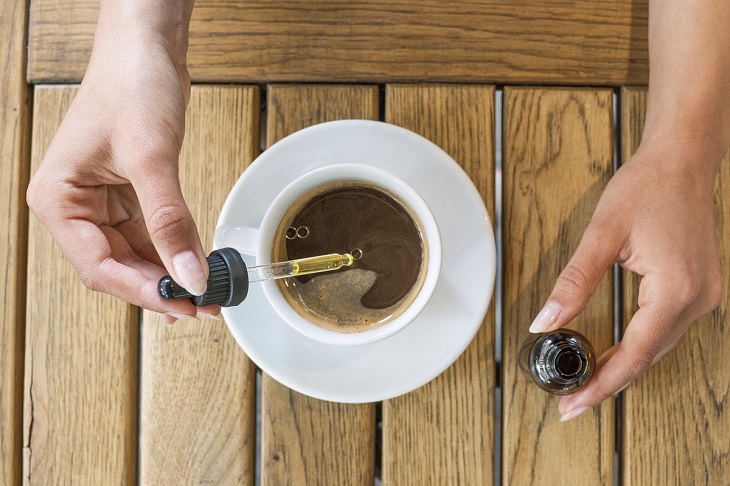In the ever-evolving landscape of wellness and medicinal alternatives, the debate surrounding CBD (cannabidiol) and THC (tetrahydrocannabinol) takes center stage. As constituents of the cannabis plant, these compounds have captured the attention of people seeking natural remedies for a myriad of conditions, ranging from pain management to anxiety relief. So when it comes to CBD vs. THC, which should you choose?
CBD and THC both have distinct properties and effects, sparking a nuanced conversation about their applications, benefits, and potential drawbacks. Let’s delve into the intricate world of CBD versus THC, exploring how they work, how they differ, and what kinds of conditions they can be used to treat.
CBD vs. THC: What’s the difference and how do they work?
CBD and THC are both cannabinoids derived from the cannabis plant, but their effects and mechanisms of action differ significantly.
CBD is non-psychoactive, meaning it doesn’t produce the “high” associated with cannabis use. It interacts with the endocannabinoid system (ECS), a complex network of receptors in the body, to promote balance and homeostasis.
On the other hand, THC is psychoactive and binds to the ECS receptors, particularly the CB1 receptors in the brain, resulting in the euphoric sensation commonly associated with marijuana use.
Medical benefits of CBD and THC: A comprehensive comparison
Both CBD and THC exhibit various therapeutic properties, making them subjects of extensive medical research. CBD is celebrated for its anti-inflammatory, analgesic, and anxiolytic effects. It has shown promise in treating conditions such as epilepsy, chronic pain, and anxiety disorders.
On the other hand, THC’s therapeutic benefits include pain relief, muscle relaxation, and appetite stimulation. Medical marijuana, which often contains higher levels of THC, is usually prescribed for patients dealing with chronic pain, nausea from chemotherapy, and certain muscle-related conditions.
CBD vs. THC for pain relief: Which is more effective?
The debate over which cannabinoid is more effective for pain relief is ongoing. CBD’s anti-inflammatory properties make it a popular choice for those seeking natural pain management. Its ability to interact with receptors outside the ECS contributes to its broader impact on pain perception.
On the other hand, THC’s direct interaction with CB1 receptors in the central nervous system can provide potent pain relief, especially for conditions involving nerve damage. The effectiveness of each compound may vary depending on the type and severity of the pain, as well as individual tolerance levels.

Image by Erin_Hinterland on Pixabay
Side effects of CBD vs. THC: A user’s guide
Understanding the potential side effects of CBD and THC is crucial for informed decision-making. CBD is generally well-tolerated, with minimal side effects such as dry mouth, drowsiness, and changes in appetite. Importantly, as we mentioned, CBD does not produce the psychoactive effects associated with THC, so if these are something you’re looking to avoid, CBD is likely the right choice.
THC, on the other hand, may cause short-term memory impairment, coordination issues, and an increased heart rate. Additionally, some individuals may experience anxiety or paranoia with higher doses of THC. It’s essential for users of THC MMJ products to start with low doses and gradually increase to find their optimal balance.
CBD and THC ratios for anxiety: Finding the right balance
Anxiety relief is one of the most sought-after benefits of cannabis compounds, and finding the right CBD to THC ratio is key. CBD’s anxiolytic properties make it a popular choice for those looking to manage anxiety without the psychoactive effects of THC. However, some individuals may find a balanced ratio or even a small amount of THC beneficial for enhancing the anxiolytic effects of CBD.
CBD vs. THC for sleep: Which is better for insomnia?
Both CBD and THC have potential applications for managing sleep-related issues, but their mechanisms differ. CBD’s calming effects can help individuals relax and improve sleep quality without the sedative properties associated with THC. THC, on the other hand, may induce drowsiness and help individuals fall asleep faster, but could lead to grogginess the next day.
Legal considerations: CBD vs. THC regulations
The legal landscape surrounding CBD and THC varies widely across different regions. CBD derived from hemp with less than 0.3% THC is federally legal in many places, while THC, especially in higher concentrations, remains tightly regulated. Understanding and adhering to local laws is essential for anyone considering the use of these compounds.
CBD and THC in skincare: Benefits and products to try
The skincare industry has embraced the potential benefits of CBD and THC. CBD’s anti-inflammatory and antioxidant properties make it a popular addition to skincare products, helping soothe conditions like acne and eczema. THC-infused topicals may also offer localized relief, but their use may be restricted in certain areas due to legal considerations, so be sure to check your local laws.
CBD vs. THC for cancer treatment: Current research and findings
The role of CBD and THC in cancer treatment is a subject of ongoing research. While some studies suggest that cannabinoids may have anti-cancer properties, the evidence is not yet conclusive. Both compounds have shown potential in managing cancer-related symptoms such as pain, nausea, and loss of appetite, but their use as standalone treatments requires further exploration.
User reviews: Experiences with CBD and THC for various conditions
User reviews provide valuable insights into the real-world experiences of individuals using CBD and THC for various conditions. Many report positive outcomes, including pain relief, improved sleep, and reduced anxiety. However, individual responses vary, emphasizing the importance of personalized approaches and consultation with healthcare professionals.
***
The world of CBD and THC is multifaceted, offering a range of potential benefits for various conditions. Understanding the differences between CBD and THC, their applications, and individual responses is crucial for making informed choices. Whether you’re seeking relief from pain, anxiety, or sleep issues, you should navigate this landscape with awareness, considering factors such as dosage, legal considerations, and personal preferences.
Featured image by Nicole Plunkett on Unsplash
